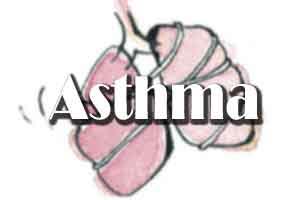- Home
- Editorial
- News
- Practice Guidelines
- Anesthesiology Guidelines
- Cancer Guidelines
- Cardiac Sciences Guidelines
- Critical Care Guidelines
- Dentistry Guidelines
- Dermatology Guidelines
- Diabetes and Endo Guidelines
- Diagnostics Guidelines
- ENT Guidelines
- Featured Practice Guidelines
- Gastroenterology Guidelines
- Geriatrics Guidelines
- Medicine Guidelines
- Nephrology Guidelines
- Neurosciences Guidelines
- Obs and Gynae Guidelines
- Ophthalmology Guidelines
- Orthopaedics Guidelines
- Paediatrics Guidelines
- Psychiatry Guidelines
- Pulmonology Guidelines
- Radiology Guidelines
- Surgery Guidelines
- Urology Guidelines
Women suffer from asthma symptoms more frequently and more severely than men

Women suffer more frequently and more severely from pollen and food allergies and therefore also from asthma. Firstly, female sex hormones increase the risk and symptoms of asthma and allergies and, secondly, hormone preparations such as the contraceptive pill play a role. These factors should be given more consideration than was previously the case. Erika Jensen-Jarolim from MedUni Vienna's Institute of Pathophysiology and Allergy Research stresses this point on the occasion of International Women's Day.
Up until the age of 10, boys are more likely to suffer from allergies and asthma and to have more severe symptoms. But the increased production of the sex hormone estrogen associated with the onset of sexual maturity and puberty means that girls become much more susceptible. Jensen-Jarolim explains: "Oestrogens cause inflammatory cells, such as the mast cells, for example, to react more sensitively to allergens. Conversely, the male hormone testosterone seems to exert a kind of protective function."
This phenomenon accompanies women through the waves of hormone production in their respective life phases from their first period to the taking of contraceptives, pregnancy through to hormonal replacement therapy at the menopause. In addition to that, they become more sensitive to environmental pollutants, especially smoking.
Nowadays, taking hormones is almost unavoidable because of life and family planning and also to avoid falling hormone levels, which play a significant role in the development of osteoporosis, for example. "Such hormone treatments can trigger hypersensitivities, which, on top of that, are characterised by atypical symptomatology," explains Jensen-Jarolim. These atypical symptoms include migraines, joint pain, eczema, worsening of acne and breathing difficulties. "We still do not pay enough attention to these links in the interaction between allergology and gynaecology." Hormone treatments are also playing an increasing role in transgender medicine and must be borne in mind.
Considering hormonal factors in allergies
"Where am I in my cycle? Am I taking hormone preparations? Do I already suffer from asthma?" these questions should be considered and discussed between doctor and patient, advises Jensen-Jarolim. Especially if the woman is pregnant: "The hormone balance changes again in pregnancy. Asthma can worsen in one third of pregnant women and an asthma attack during pregnancy represents a serious risk to mother and child." It is therefore advisable to have an allergy diagnosed at an early stage, preferably before the pregnancy because an untreated allergy is the first step towards asthma.
Problem of "allergy to hormones" still practically unresearched
A field of research that is still in its infancy but is becoming increasingly important and affects women is that of allergy to hormones themselves, that is to say a "hormone allergy" in connection with contraceptives, which can even lead to miscarriage. The scientists at MedUni Vienna believe there is a pressing need not only to initiate research in this area but also to progress diagnostics together with the gynaecologists. Hitherto there is practically no experience in this area in Austria, as in most countries.

Disclaimer: This site is primarily intended for healthcare professionals. Any content/information on this website does not replace the advice of medical and/or health professionals and should not be construed as medical/diagnostic advice/endorsement or prescription. Use of this site is subject to our terms of use, privacy policy, advertisement policy. © 2020 Minerva Medical Treatment Pvt Ltd